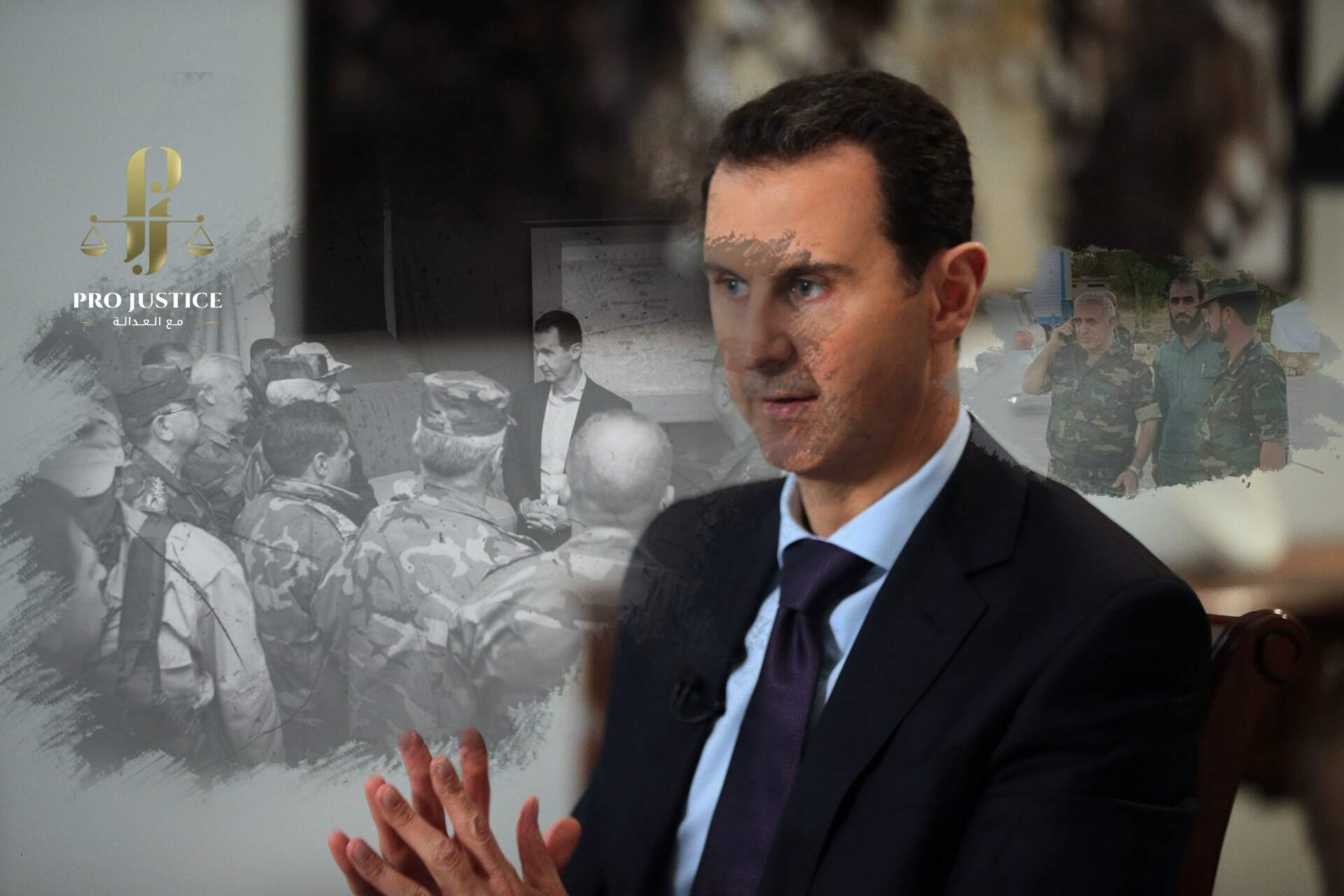This is a good start, although, given the scale of the crimes committed, what is really required is the formation of a special international criminal tribunal at The Hague dedicated to Syria-related cases would serve to accelerate the criminal-justice accountability process.
December 22, 2022

Source: Telegraph
While the world’s attention is understandably focused on Ukraine, it remains imperative that those responsible for committing some of the worst war crimes of the 21st century during Syria’s brutal civil war are brought to justice.
For all the denials of wrong-doing by Syrian dictator Bashar al-Assad’s regime, and its ludicrous proposition that Assad is a civilised, law-abiding leader who was merely protecting his country against foreign-sponsored extremists, a compelling body of evidence paints a very different story: one where the regime systematically committed atrocities against its own citizens.
And if the perpetrators of the similarly appalling crimes against humanity that are being committed in Ukraine are ever to face justice, then it is imperative that the international community ensures Assad and his henchmen are made to account for their own horrendous crimes.
The worst excesses of the Syrian conflict may have passed, but the civil war will forever be remembered for the images of barrel bombs raining on civilian neighbourhoods, of Syrian prisons overflowing with civilians subjected to unspeakable horrors, and regime forces gunning down protestors in public squares.
Now, thanks to exhaustive research carried out by a dedicated team working for the Commission for International Justice and Accountability (CIJA), a vast tranche of material has been accumulated that provides incontrovertible evidence of the regime’s involvement in some of the worst atrocities committed during the conflict.
The material provides exhaustive detail about how the regime conducted – and continues to conduct – a systematic, centrally planned campaign of mass murder and torture.
CIJA has accumulated material that catalogues, amongst other things, two categories of criminal behaviour: the regime’s torture and murder of detainees; and its use of military and paramilitary forces to commit atrocities against unarmed civilians.
Internal regime communications acquired by CIJA show orders were issued from the highest leadership level “not to have compassion and mercy towards demonstrators” and to dissolve public protests “regardless of the consequences.” Military commanders received written instructions to threaten communities with destruction in the event of resistance to Assad’s forces. Regime documents also allow us to trace the chain of authority through which these threats were put into action, including by means of direct orders to strike hospitals with artillery and to mobilise and arm loyalist paramilitaries who then massacred civilians.
Criminal culpability is just as clear for the atrocities which took place in the Assad regime’s detention centres. High-ranking regime officials could watch these crimes in real time via cameras installed in interrogation rooms, with the images sent directly to their offices. Some senior officials even participated in the rape of detainees themselves.
These crimes were ordered and micromanaged by the Central Crisis Management Cell (CCMC), the supreme decision-making body created by Assad in March 2011 to coordinate the crackdown by his political, military, and security institutions. This machinery kept Assad extensively informed; and he, in turn, managed the machinery closely.
Ultimately, the prosecution case against Assad and his henchmen will rest, just as was the case at the Nuremberg trials of Nazi war criminals after the Second World War, on the meticulous reports their own bureaucracy recorded on the mass murder of its citizens.
Assad personally read detailed reports sent to him on a daily basis, and he in turn issued instructions through the chains of command. The regime’s internal documents show that all of Assad’s current top lieutenants had a direct role in informing him and in brutally executing his instructions.
With the UN-led Syrian peace process deadlocked – stymied by Russia, in particular – Western priorities have shifted to other conflicts such as Russia’s invasion of Ukraine. Regrettably, Western pressure on Assad has relaxed.
But that should not mean that the key perpetrators of the Syrian regime’s crimes against humanity should be allowed to escape justice. Investigations and prosecutions of Syrian war criminals are taking place in various jurisdictions – in Europe, most especially.
This is a good start, although, given the scale of the crimes committed, what is really required is the formation of a special international criminal tribunal at The Hague dedicated to Syria-related cases would serve to accelerate the criminal-justice accountability process.
It would certainly serve the interests of the major Western powers to establish such a tribunal. Bringing the perpetrators of war crimes in Syria to justice would help to generate the momentum needed to secure a genuine political settlement to the war in Syria. Holding the Assad regime and other war criminals accountable would also serve the purpose of deterring other regimes, such as Russia, that might emulate Assad’s brutal war in the future to solve their own political problems.
